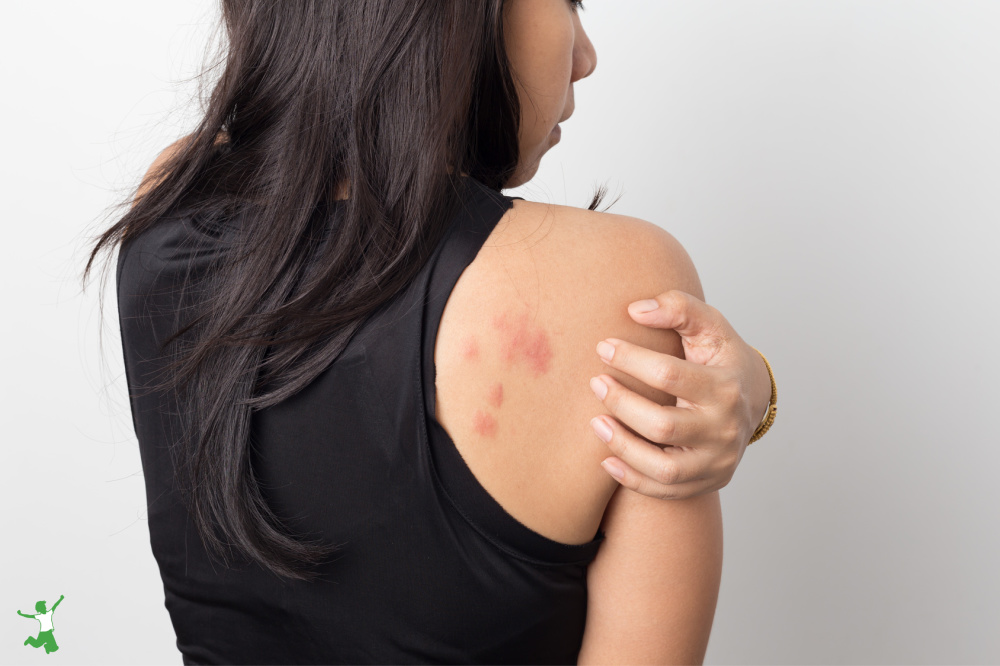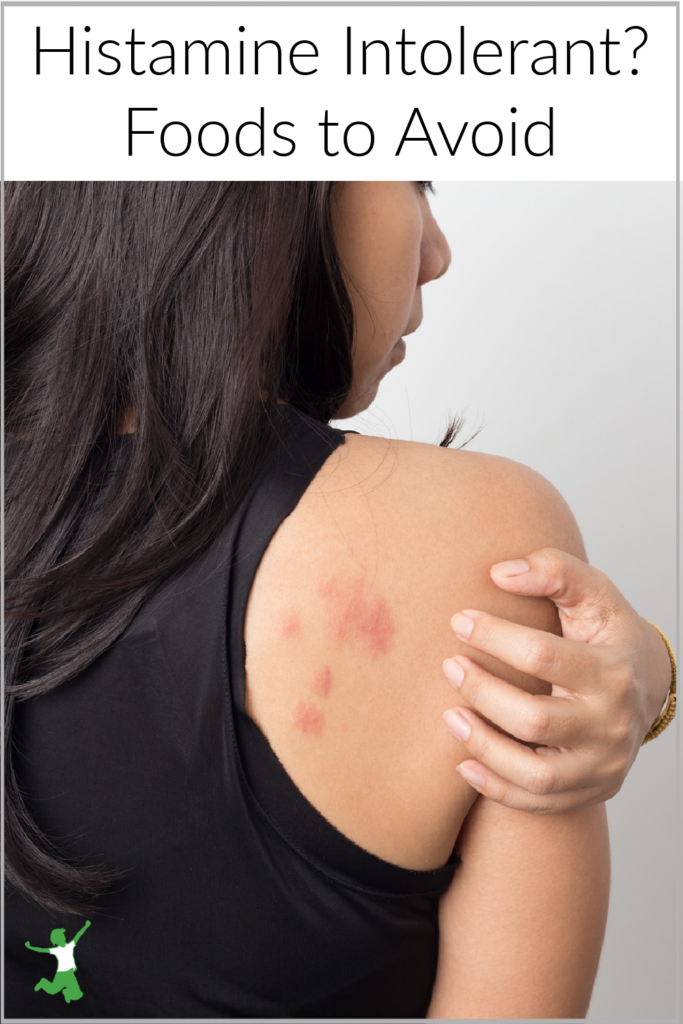The role of histamines in fermentation and how some people may need to address gut imbalance first in order to fully enjoy the benefits of these traditionally cultured foods without symptoms such as breakouts.

We have known since the 1930s that beneficial bacteria, especially Lactobacillus acidophilus found in fermented foods, can help heal intestinal permeability.
This condition is better known as leaky gut. The research clearly shows that foods rich in probiotics are an essential component in maintaining clear skin and avoiding problems with acne.
But what about those with histamine intolerance?
This condition, in fact, might be an important caveat to watch out for with regard to the consumption of fermented foods and those prone to skin breakouts.
Histamine Intolerance and Fermented Foods
Histamine is a chemical your body produces as a result of an allergic reaction. The release of histamine frequently can express itself on the surface of the skin through a number of symptoms, including but not limited to urticaria (hives), eczema, rosacea, and acne.
Interestingly, the histamine molecule along with the amino acids tyrosine and arginine all have an effect on vasculature (blood flow), and have been linked to contribute to migraine headaches. Too much tyramine in the diet can increase blood pressure, whereas too much arginine reduces blood pressure.
Fermented foods are one of the biggest sources of histamines.
Those who have yet to see an improvement with other suggestions and diet changes to address their acne, may have a histamine intolerance and benefit greatly from avoiding histamine and histamine-releasing foods.
The enzyme DAO (Diamine Oxidase) metabolizes histamine, and research shows that those who are sensitive to foods high in histamine may produce low levels of this enzyme.
In addition, people with low levels of DAO typically have other digestive concerns too, such as intestinal permeability, SIBO (small intestinal bacterial overgrowth), and possibly other gut-related symptoms and conditions.
Although there is not direct evidence linking acne to foods high in histamine, there are studies that show improvement of Atopic Dermatitis when a low histamine diet is adopted.
Furthermore, I have personally experimented with a diet low in histamine, arginine, and tyrosine and have experienced reduced irritation in the skin and minimizing of breakouts. This same improvement was noted with several of my clients with difficult-to-eradicate acne issues.
Acne and Possible Diet Link
Any form of stress causes inflammation, and eating foods promoting inflammation can certainly cause acne, even without exposure to acne-causing bacteria.
This is why traditional ways to are not always effective. When inflammation occurs, stress hormones trigger the release of histamine, which in turn can irritate the skin for those with histamine intolerance.
For some tougher acne cases, this may be the body’s way of expressing its reaction when consuming foods high in these substances.
High Histamine Foods to Avoid
There are many foods containing a mixture of histamine and tyrosine, and that’s because histamine induces tyrosine production, which specifically includes foods that are aged, cured, smoked, and fermented.
I’m a big proponent of self-experimentation when it comes to diet and what works for an individual. A typical elimination diet would exclude the most common food suspects and sensitivities.
However, if you haven’t noticed an improvement in your skin after doing this, the following foods on the list below are worth avoiding as well.
Note that histamine intolerance is a wide spectrum. Hence, it would be common for sufferers to find some of these foods below irritating while others produce no issues.
Beverages
Avoid teas, regular coffee, sodas, beer, wine, cider, kombucha, and even milk.
Fruits
Citrus fruits, pineapple, peaches, nectarines, cranberries, strawberries, raspberries, avocados, dates, raisins, plums and papaya, olives, bananas, and tomatoes.
Vegetables
Cabbage, nightshades like tomatoes and eggplant, pickles, spinach, and fermented vegetables such as sauerkraut.
Dairy
Aged cheeses, such as cheddar, gouda, brie and blue cheese (think smelly cheeses), and fermented dairy such as yogurt, kefir, and cultured buttermilk.
Spices
Ceylon cinnamon, cassia cinnamon, anise, curry powder, hot paprika and nutmeg. Watch out for fermented condiments too like traditional soy sauce and coconut aminos.
Nuts and seeds
Peanuts, almonds, hazelnuts, cashews, and walnuts are the highest sources of histamines in these foods.
Smoked or cured meats
Watch out for mahi mahi, tuna, sardines, cured meat like bacon, ham, deli meat, sausages, hot dogs, jerky, and pepperoni.
Miscellaneous
Consider avoiding chocolate, cocoa powder or chocolate-derived ingredients, artificial additives/ flavors/ dyes, natural soy sauce, wheat germ, vinegar of all kinds, miso paste (both light and dark) and other foods made by fermenting soy, ketchup and mustard.
Probiotics Can Fill the Gap
Many of the foods on the list above are fermented. This means that they can provide good bacteria in order to strengthen gut and immunity health.
Thus, a probiotic supplement is an appropriate choice for people who have a histamine intolerance or sensitivity.
This article details how to choose the best probiotic for your situation, histamine intolerant or otherwise.
Complete avoidance of these foods is difficult to do and not necessary forever. Eliminating them for at least a month should give you a good idea as to whether your body is being affected.
At a later time, you can reintroduce these foods back into your diet slowly. It’s important to note and keep in mind that some people will react more specifically to histamine.
Others may be affected more or equally by tyrosine or arginine, or possibly have no reaction at all.
Be patient, listen, and see how you’re body responds. Observation is the ultimate test to know what will bring you the results you’re looking to achieve both in your skin and overall health.

References
(1) Risk factors for sebaceous gland diseases and their relationship to gastrointestinal dysfunction in Han adolescents
(2) Histamines in Migraine and Brain
(3) Treatment of Atopic Dermatitis with a Low Histamine Diet
(4) Histamines and Histamine Intolerance
(5) Oxidative deamination of biogenic amines by intestinal amine oxidases: histamine is specifically inactivated by diamine oxidase
More Information
Taking Probiotics for Maximum Benefit








Hi, I’m new to this site, and not sure where to start. I’ve got an itching condition which mostly shows up in the evening (then dies down later-mostly); I had self diagnosed it as prickly heat/heat rash but wondering if it’s something else. Could I be infested with some mite – chiggers ? – or undergoing the beginning of a different affliction? Which specialty in medicine might be equipped to help me? Do I need a nutritionist; an integrative md; someone else? Thank you, Sue Tenthorey Holden Massachusetts
You don’t list eggs on here – I thought that they were very high in histamines.
Raw egg whites are fairly high in histamines, but if you eat the whole egg including the yolk and cook it like most people do, it is in the safe range.
Raw egg whites aren’t a good idea to eat anyway. https://www.thehealthyhomeeconomist.com/are-raw-egg-whites-healthy/
Vitamin B3 (Niacinamide) face pads help keep acne away by scrubbing open clogged pores, oily residues and exfoliation. Feel a pimple coming just wet a pad, place it on the pimple and remove it when dry. Sit back and watch pimple disappear. Works on body acne too.
These pads also help reduce skin hyperpigmentation (acne scars).
I am so fed up at the moment I feel like I am in CATCH 22. Each time I eat fermented foods I get histamine intolerance symptoms. The thing is I don’t know why but I kinda get the feeling these same foods can heal my intolerance. I have heard they heal leaky gut and I am assuming since I was not born with this condition I must have a leaky gut there fore consuming these foods although they cause severe symptoms maybe they may help if I know how to go about it effectively . Do you know of any ferments that can lower histamine intolerance. Thank you
Thank you so much for replying, Sarah. And thank you for all the information you share in helping people with their health. It’s a huge relief and an enourmous blessing to have the hard work you have put in to understanding nutrition, posted on your blog so that we can use it to help heal our family’s as well as our own health. Thank you for having a heart to help people. God bless you!
Just my opinion. If you look at primitive peoples, they do not have acne and they are not obese. There are whole tribes of people that consume loads of milk and have beautiful skin. So what’s changed? These people certainly did have fermented foods, but not refrigeration. This might be a clue as to why people are obese and have acne today.